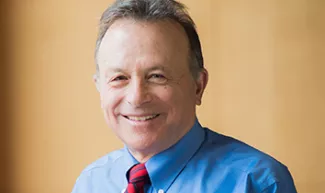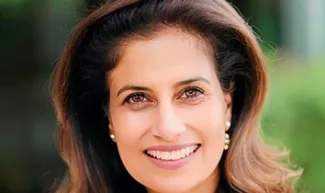UCSF T32 Training Grant (FAVOR)


The UCSF Department of Surgery T32 training grant “Filling a Void of Research Training for Transplant Surgeons” (FAVOR), will provide two years of funding for in-depth training in translational immunology for two general surgery residents each year with an interest in transplant surgery. The program is led by Professors Peter Stock, M.D. and Minnie Sarwal, M.D., Ph.D.
The goal of FAVOR T32 is to prepare the T32 research fellows to train and inspire a unique cadre of surgeon-scientists to translate astute observations at the bedside, in the operating room, and in the clinic into novel hypotheses that can be interrogated through immunology-focused translational research.
The program leverages the world-class transplant surgery program at UCSF, a high volume tertiary referral center for the region with excellent post-transplant outcomes. The FAVOR T32 program will focus on preparing surgical trainees for translationally-focused research careers, utilizing state-of-the art-tools for the study of allo- and heterologous immune mechanisms relevant to solid organ transplant injury and acceptance.
Trainees will receive in-depth training in translational research to prepare them for careers as academic transplant surgeons. FAVOR trainees will devote ≥ 90% time effort to research for 2 years, guided by two mentors of their choice selected from a Core Faculty Member list, the first a clinical mentor and the second a scientific mentor (basic or translational). The FAVOR T32 program will enable surgical residents who have been accepted in the program to develop their research careers in the dual bench to bedside model for translational research.
Goals and Research Experience
The goal of the FAVOR T32 training program is to provide a comprehensive two-year translational research experience, consisting of hands-on and didactic sessions related to transplantation (kidney, liver, pancreas, heart, lung), which will prepare the trainee for an academic translational career in transplant surgery. There will be two training slots/ year, competitively recruited from the Department of Surgery Residency Programs in the U.S., with preference given to UCSF trainees. In addition, one of the two slots will be offered to a transplant fellow interested in a 1-2 year degree course.
T32 Faculty Mentors
Each trainee will be co-mentored by a clinical PI and scientific PI selected from the rosters of Clinical Translational Research Training (CRT) faculty and Scientific Translational Research Training (SRT) respectively.
Overview and Coursework
Trainees in the proposed program will devote ≥90% time effort to research for 2 years, guided by 2 mentors selected from Core Faculty Member list, with one mentor from the CRT core (clinical PI) and one mentor from the SRT core (scientific PI) to develop their research career in the dual bench/bedside model for translational research. Candidates selected for interview will meet with potential mentors to specifically discuss potential research interests. The goal is to achieve a well-defined research plan prior to the start of training so that research activities can proceed without delay. During the 2 years of training, trainees will be expected to submit at least 2 manuscripts by the time they graduate from the program.
Trainees will be expected to complete a series of formal, outlined base curriculum coursework concurrent with mentored clinical-translational research projects. Trainees will be provided a unique experience of attending a series of FAVOR T32 immersion workshops, the SCRW Summer Workshop which covers designing clinical research, statistics and data management, a scientific writing course, and a biostatistical methods course. Additional courses and seminars will be encouraged as appropriate. Graduates of the proposed training are expected to be on their way to independence as physician-investigators, ready to compete for and secure extramural funding to support a research program upon becoming an academic transplant surgeon.
Download the Favor T2 Coursework Document which provides information on the courses available as part of the program. This can be utilized to create an outline of curriculum coursework adding up to 100 hours per year. The courses under the base curriculum are required, while the specialized training elective courses are to be chosen at the mentee’s discretion towards the best fit to the project.
One position every year will recruit candidates that are interested in pursuing any one of these available degree programs at UCSF:
- Designing Clinical Research (1 month)
- Advanced Training In Clinical Research Certificate Program (ATCR) (1 year)
- Master’s in Clinical Research (2 years; candidates interested in this program will be identified prior to starting the fellowship)
- Modern Methods in Drug Discovery (5 weeks)
- Idea to IPO (course in bio entrepreneurship, 12 weeks)
- Translational Challenges: Diagnostics, Devices &Therapeutics (12 weeks)
- Master’s in Translational Medicine (1 year)
Qualifications
Post-doctoral surgery residents, US Trained.
- Candidates must be citizens or non-citizen nationals of the United States or have been lawfully admitted for permanent residence (in possession of a valid Alien Registration Receipt Card, or "green card") at the time of appointment.
- Candidates must hold a post-doc degree from an accredited domestic or foreign institution.
- Candidates must be currently appointed in an ACGME general surgery residency program.
- Trainees will be expected to commit full time to the research training.
We encourage and welcome all qualified applications to the T32 training program. This program is open to all who meet academic, professional, and interest criteria. In accordance with Federal and State law and University policy, the University of California does not discriminate on the basis of age, gender, race, ethnicity, national origin, religion, sexual orientation, gender identity, health, or disability. For detailed information, please visit the Office for the Prevention of Harassment and Discrimination.
